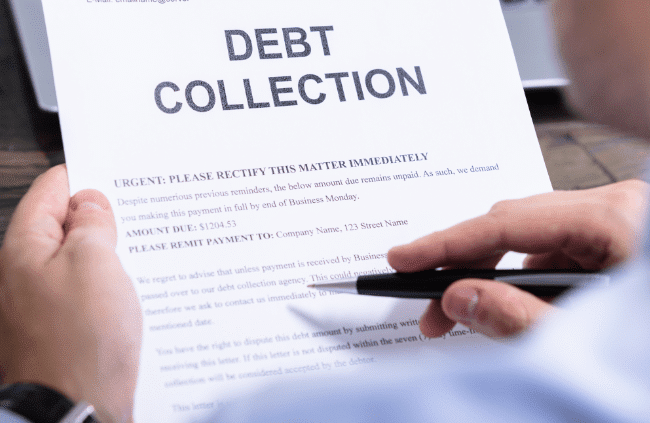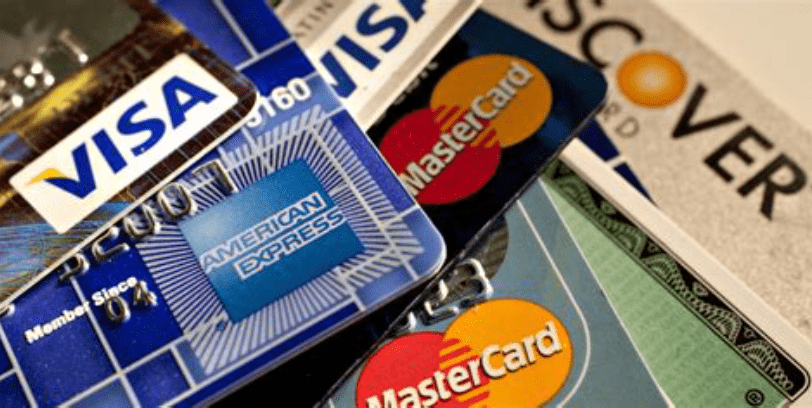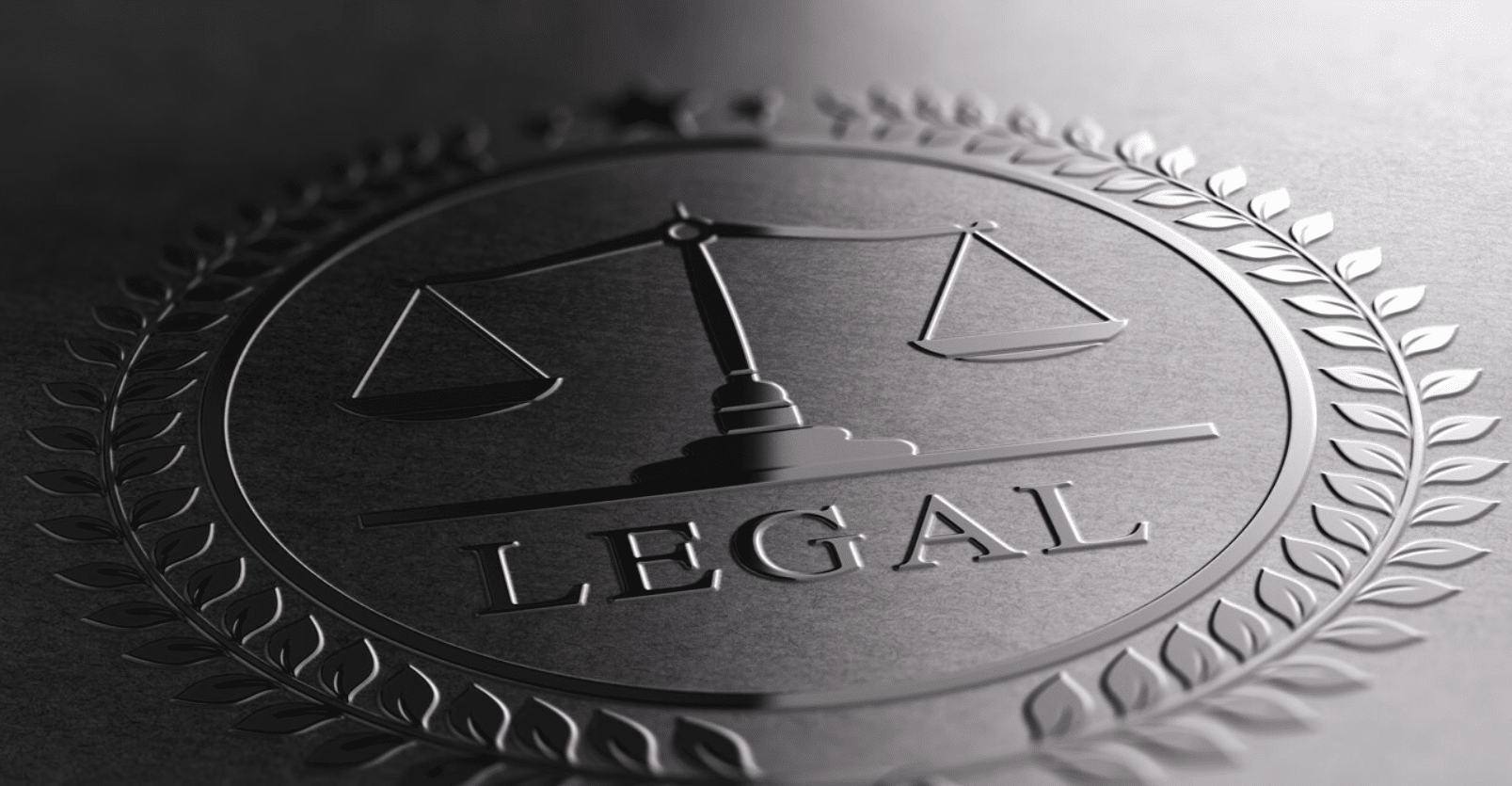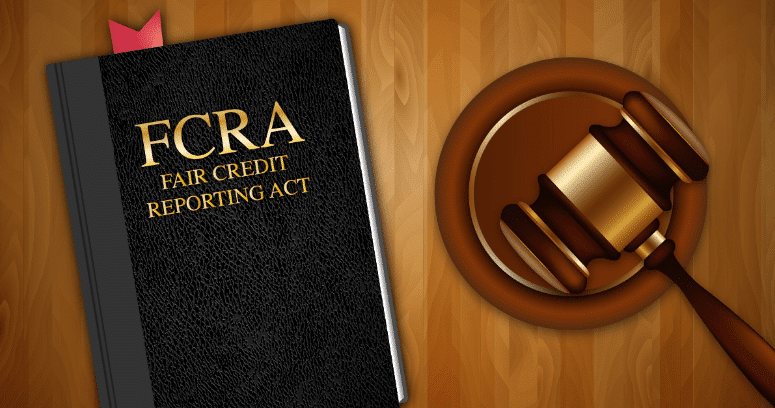Yes, it is indeed possible to address a debt lawsuit after being served. The recommended approach entails promptly filing a response and subsequently initiating contact with the opposing party to propose a settlement. Utilizing platforms such as Zumazip.com can streamline the response process to a mere 15 minutes, providing individuals with the necessary means to negotiate effectively.
Debt litigation often catches individuals off guard when pursued by collectors. Failure to engage in the legal process can result in automatic judgment against the defendant, potentially leading to garnishment of wages or seizure of assets. For those with genuine liability, the prudent course of action involves timely response to the lawsuit followed by constructive negotiation with the collector.
Why have I been served?
If you have been served a Summons for debt collection, it’s probably because you have not paid a debt. However, according to research by the Consumer Financial Protection Bureau, there is actually a high chance you don’t really owe the debt at all. If you do owe the debt, a lawsuit is usually the creditor’s last resort and it means that you have avoided paying a bill for quite a while.
In most states, if you are being sued for debt, you will be served a Summons and Complaint. These are the legal documents that initiate a debt lawsuit case. The Summons notifies you that you are being sued, and the Complaint tells you why you are being sued.
You may be served these documents personally, meaning someone hands them to you. You can also be served these documents in the mail. You may also never be served at all, but through a process called “sewer service” the lawsuit is still filed against you.
We hear it all the time from our customers: “I didn’t even receive a collections notice!” Collectors do this because they are banking on you not responding to the lawsuit. When you don’t respond, collectors can file a default judgment against you. If granted by the court, the default judgment gives collectors the legal authority to garnish your wages, seize your property, etc.
You can avoid default judgment by filing an Answer with the court and reaching out to the collector to negotiate a settlement.
Can I settle my debt after being served?
Technically, you can reach out to the party suing you to discuss a payment plan at any time. However, there are certain tips and tricks that will help you reach the ideal settlement for you.
So, yes, you can settle a debt after being served, but make sure to file your Answer first. Here’s why
What are my options after being served?
You have a few options when you are served:
- File an Answer — This is likely to be, depending on your unique circumstances, the best option. Filing an Answer prevents the court from filing a default judgment against you. Filing an Answer protects you from default judgment, or losing automatically. It also puts you in a position of power, giving you leverage to settle your case. Even if you owe the debt, or if the statute of limitations has expired, you should still file an Answer.
- Do nothing — If you do nothing, there is a good chance you may automatically lose. Doing nothing typically results in the debt collector filing a Motion for Default Judgment against you. After that, the collector can take your money directly from your paycheck or bank account.
- Do something invalid — Doing something invalid is surprisingly common and has effectively the same result as doing nothing. Invalid actions include: filing the Answer improperly, admitting everything in your Answer, calling the collector without filing an Answer, getting a settlement without filing an Answer, and responding to the collector with the wrong document, like a letter.
The first two options are shown below in this diagram of paths to win a debt collection lawsuit. As it shows, If you file an Answer, you can angle for settlement. If you don’t, you’ll lose by default. Paying the debt without filing an Answer isn’t a good idea. If you pay the debt without filing an Answer, the collector can go behind your back and file for default judgment; then the collector can lie, saying they never received payment, and garnish your wages to collect the debt twice. Filing an Answer gives you basic protection.
So, to be clear, you should always file your Answer before settling.
What should I do first after being served?
The moment you are served the clock starts ticking, meaning you have minimal time to respond before matters get worse. Despite this, after being served, the first thing you should do is stay calm. Next, you should go through the following steps to ensure that you settle your debt after being served.
Respond immediately
It is essential to respond to a summons immediately. This will ensure that you have a better chance to settle your debt after being served. The deadline to respond varies from state to state, but it ranges from 14 to 31 days. If you miss your opportunity to file an answer to being served, then the debt collector may file for a default judgment. This will prompt wage garnishment, and you will no longer be able to negotiate your debt.
ZumaZip makes it simple to respond the right way.
Check to see if you are legally liable
Look through all of the papers that you have been served with. Verify whether you do in fact owe money to the company that is attempting to collect a debt from you. Ask yourself a few questions:
- Did you borrow money from this company or do you owe them money on a loan?
- Is the amount that you are being sued for the same amount that matches with your own records?
This is not a question of if you can pay the debt, but simply a question of it you are legally liable to pay for it.
Examine your finances
Once you understand what amount you owe, it is important to understand what the creditors can legally take from you if they obtain a judgment.
If you own your home, then this is one item the creditors may be able to claim in a judgment. If you rent your domicile, then this is not something to worry about.
Creditors do have the option to freeze your bank accounts and garnish your wages. It is a good idea to calculate how much the creditors may be able to take in wage garnishment. This will not only allow you to prepare, but it may be able to ease your mind as well.
If the only income you receive is from Social Security, then in some states your accounts cannot be legally frozen, and there is nothing for them to come after for the moment.
Determine how much money you can afford to settle for. The most enticing settlement offers for collectors are lump sum payments. If you are able to pay a lump sum payment, you will pay less than you would with a monthly payment plan. Determine how much you can afford to pay as a lump sum payment and prepare to offer it for settlement.
Make an offer
After filing an Answer, you can settle with the collector by sending an offer with ZumaZip Settle
If you are dealing with a debt buyer — someone who bought your debt from the original creditor — then they will probably accept a settlement between 1%–50% of the amount they’re suing you for. On average, debt collectors buy debts for 8 percent of the face value of a debt. Meaning if they settle for 10 percent of the debt, they will earn 2 percent. If you are dealing with the original creditor, they will be less willing to settle for a low amount. You may be able to settle for 20%-70% of the debt.
Put together a realistic offer based on your finances and the debt itself. If you are struggling to come up with the money look at your valuable possessions. What can you sell that would not be detrimental to your life?
If you can’t afford a lump sum payment, then monthly payments may be your best option.
You can make a settlement offer in minutes with ZumaZip.
Continue to defend yourself
After you respond to the lawsuit and make a settlement offer, the collector may refuse to settle and, instead, continue to the next phase of the lawsuit. Usually, this phase is discovery. You know your lawsuit has progressed to discovery if you receive a Request for Response to Admissions or Interrogatories. To defend yourself in this stage, you need to file a response to these pre-trial requests. A bare-minimum response will likely be sufficient to continue the negotiation process and, hopefully, reach an amicable settlement.
What is ZumaZip?
ZumaZip is a convenient solution designed to streamline your response to a debt collection lawsuit. Here’s a breakdown of what you can expect when you use ZumaZip:
Firstly, you’ll access our user-friendly web application, which guides you through the process step by step. You’ll be prompted to answer a series of questions related to your specific situation. Once you’ve completed the questionnaire, you have the option to either print out the finalized forms and mail them to the appropriate courts yourself, or you can opt to utilize ZumaZip’s services to file them on your behalf. Additionally, if you choose this option, an attorney will review your document for added peace of mind.
If you’re seeking guidance on how to effectively respond to a debt collection lawsuit, ZumaZip can provide the assistance you need. Feel free to explore our FAQs for more information on what ZumaZip has to offer.
What if I haven’t been sued yet?
If you’ve only received a collections notice, but not a lawsuit, the best way to respond is with a Debt Validation Letter. When a debt collector contacts you in any way, whether it’s by phone or mail, you can respond by formally requesting a debt validation with a Debt Validation Letter . This letter notifies the collector that you dispute the debt and forces them to provide proof you owe the debt. They can’t call you or continue collecting until they provide validation of the debt. This flowchart shows how you can use a Debt Validation Letter to win.
Get started with a Debt Validation Letter here.
How to Answer a Summons for debt collection in all 50 states
Here’s a list of guides on how to respond to a debt collection lawsuit in each state:
- Alabama
- Alaska
- Arizona
- Arkansas
- California
- Colorado
- Connecticut
- Delaware
- Florida
- Georgia
- Hawaii
- Idaho
- Illinois
- Indiana
- Iowa
- Kansas
- Kentucky
- Louisiana
- Maine
- Maryland
- Massachusetts
- Michigan
- Minnesota
- Mississippi
- Missouri
- Montana
- Nebraska
- Nevada
- New Hampshire
- New Jersey
- New Mexico
- New York
- North Carolina
- North Dakota
- Ohio
- Oklahoma
- Oregon
- Pennsylvania
- Rhode Island
- South Carolina
- South Dakota
- Tennessee
- Texas
- Utah
- Vermont; Vermont (Small Claims court)
- Virginia
- Washington
- West Virginia
- Wisconsin
- Wyoming
Guides on how to beat every debt collector
Hey there! Facing off against a debt collector can feel like a daunting challenge, but fear not! We’re here to help you navigate through it all with our handy guides designed to assist you in beating every debt collector you encounter. Whether you’re facing a new lawsuit or dealing with a persistent collector, we’ve got your back. Stay positive, stay informed, and let’s tackle this together!
- Absolute Resolutions Investments LLC
- Accredited Collection Services
- Alliance One
- Amcol Clmbia
- American Recovery Service
- Asset Acceptance LLC
- Asset Recovery Solutions
- Associated Credit Services
- Autovest LLC
- Cach LLC
- Cavalry SPV I LLC
- Cerastes LLC
- Colinfobur
- Covington Credit
- Crown Asset Management
- CTC Debt Collector
- Cypress Financial Recoveries
- Delanor Kemper & Associates
- Eagle Loan of Ohio
- Educap
- Estate Information Services
- FIA Card Services
- Forster & Garbus
- Freshview Solutions
- Fulton Friedman & Gullace LLP
- Harvest Credit Management
- Howard Lee Schiff
- Hudson & Keyse LLC
- Integras Capital Recovery LLC
- Javitch Block
- Jefferson Capital Systems LLC
- LVNV Funding
- Mannbracken
- Mariner Finance
- Medicredit
- Michael J Adams PC
- Michael J Scott
- Midland Funding LLC
- Mullooly, Jeffrey, Rooney & Flynn
- Mountain Land Collections
- MRS Associates
- National Collegiate Trust
- Nationstar Foreclosure
- Northstar Capital Acquisition
- NCEP LLC
- NRC Collection Agency
- OneMain Financial
- Palisades Collection LLC
- Pallida LLC
- Paragon Revenue Group
- Pinnacle Collections Agency
- PMAB LLC
- Portfolio Recovery Associates
- Provest Law
- PYOD LLC
- Reunion Student Loan Finance Corporation
- Revenue Group
- Regents and Associates
- RSIEH
- Salander Enterprises LLC
- Second Round Sub LLC
- Security Credit Services
- Sherman Financial Group
- Suttell and Hammer
- T-Mobile
- Transworld Systems
- Tulsa Teachers Credit Union
- UCB Collection
- Velo Law Office
- Velocity Investments
- Waypoint Resource Group
- Weinberg and Associates
- Wolpoff & Abramson
Settle your medical debt
Having a health challenge is stressful, but dealing medical debt on top of it is overwhelming. Here are some resources on how to manage medical debt.
- Am I Responsible for My Spouse’s Medical Debt?
- Do I Need a Lawyer for Medical Bills?
- Do I Need a Lawyer to Fight Medical Bill Debt?
- Does Bankruptcy Clear Medical Debt?
- How Much Do Collection Agencies Pay for Medical Debt?
- How to Find Medical Debt Forgiveness Programs
- Is There a Statute of Limitations on Medical Bills?
- Medical Debt Statute of Limitations by State
- Summoned to Court for Medical Bills — What Do I Do?
- Summoned to Court for Medical Bills? What to Do Next
Stop calls from Debt Collectors
Do you keep getting calls from an unknown number, only to realize that it’s a debt collector on the other line? If you’ve been called by any of the following numbers, chances are you have collectors coming after you, and we’ll tell you how to stop them.
- 800-390-7584
- 800-289-8004
- 800-955-6600
- 877-366-0169
- 877-591-0747
- 800-278-2420
- 800-604-0064
- 800-846-6406
- 877-317-0948
- 888-899-4332
- 888-912-7925
- 202-367-9070
- 502-267-7522
Other wage garnishment resources
- Bank Account Garnishment and Liens in Texas
- Can I Stop Wage Garnishment?
- Can My Wife’s Bank Account Be Garnished for My Debt?
- Can Payday Loans Garnish Your Wages?
- Can pensions be garnished?
- Can Private Disability Payments Be Garnished?
- Can Social Security Disability Be Garnished?
- Can They Garnish Your Wages for Credit Card Debt?
- Can You Stop a Garnishment Once It Starts?
- Guide to Garnishment Limits by State
- How Can I Stop Wage Garnishments Immediately?
- How Long Before a Creditor Can Garnish Wages?
- How Long Does It Take to Get Garnished Wages Back?
- How to Fight a Wage Garnishment
- How to Prevent Wage Garnishment
- How to Stop a Garnishment
- How to Stop Social Security Wage Garnishment
- How to Stop Wage Garnishment — Everything You Need to Know
- New York Garnishment Laws – Overview
- Ohio Garnishment Laws — What They Say
- Wage Garnishment Lawyer
- What Is Wage Garnishment?
Guides on Arbitration
If the thought of going to court stresses you out, you’re not alone. Many Americans who are sued for credit card debt utilize a Motion to Compel Arbitration to push their case out of court and into arbitration.
Below are some resources on how to use an arbitration clause to your advantage and win a debt lawsuit.
- How Arbitration Works
- How to Find an Arbitration Clause in Your Credit Agreement
- How to Make a Motion to Compel Arbitration
- How to Make a Motion to Compel Arbitration in Florida
- How to Make a Motion to Compel Arbitration Without an Attorney
- How Credit Card Arbitration Works
- Motion to Compel Arbitration in California
- Sample Motion to Compel Arbitration
Federal Debt Collection Laws Can Protect You
Knowing your rights makes it easier to stand up for your rights. Below, we’ve compiled all our articles on federal debt collection laws that protect you from unfair practices.
- 15 USC 1692 Explained
- Does the Fair Credit Reporting Act Work in Florida?
- FDCPA Violations List
- How to File an FDCPA Complaint Against Your Debt Collector (Ultimate Guide)
- How to Make a Fair Debt Collection Practices Act Demand Letter
- How to Submit a Transunion Dispute
- How to Submit an Equifax Dispute
- How to Submit an Experian Dispute
- What Debt Collectors Cannot Do — FDCPA Explained
- What Does Account Information Disputed by Consumer Meets FCRA Requirements Mean?
- What does “meets FCRA requirements” mean?
- What does FCRA stand for?
- What is the Consumer Credit Protection Act
Resolve Your Debt with Your Creditor
Some creditors, banks, and lenders have an internal collections department. If they come after you for a debt, ZumaZip can still help you respond and resolve the debt. Here’s a list of guides on how to resolve debt with different creditors.
- American Express; American Express – Debt Collection
- Bank of America
- Barclay
- Best Buy Credit Card
- Capital One
- Chase
- Credit One Bank
- Old Navy Credit Card
- PayPal Synchrony Card
- Regional Finance
- Retailers National Bank
- Reunion Student Loan Finance Corporation
- SYNCB/PPEXTR
- Synchrony Bank
- Synchrony Walmart Card
- Target National Bank
- Webbank
- Wells Fargo
- Can I Pay My Original Creditor Instead of a Debt Collection Agency?
- Can I Settle a Debt with the Original Creditor?
Check the Status of Your Court Case
Don’t have time to go to your local courthouse to check the status of your case? We’ve created a guide on how to check the status of your case in every state, complete with online search tools and court directories.
- Alabama Court Case Search—Find Your Lawsuit
- Alaska Court Case Search — Find Your Lawsuit
- Arizona Court Case Search – Find Your Lawsuit
- Arkansas Court Case Search — Find Your Lawsuit
- California Court Case Search- Find Your Lawsuit
- Colorado Court Case Search — Find Your Lawsuit
- Connecticut Case Lookup — Find Your Court Case
- Delaware Court Case Search — Find Your Lawsuit
- Florida Court Case Search — Find Your Lawsuit
- Georgia Court Case Search — Find Your Lawsuit
- Hawaii Court Case Search — Find Your Lawsuit
- Idaho Court Case Search – Find Your Lawsuit
- Illinois Court Case Search — Find Your Lawsuit
- Indiana Court Case Search — Find Your Lawsuit
- Iowa Court Case Search — Find Your Lawsuit
- Kansas Court Case Search — Find Your Lawsuit
- Kentucky Court Case Search — Find Your Lawsuit
- Louisiana Court Case Search — Find Your Lawsuit
- Maine Court Case Search — Find Your Lawsuit
- Maryland Court Case Search — Find Your Lawsuit
- Massachusetts Court Case Search — Find Your Lawsuit
- Michigan Court Case Search — Find Your Lawsuit
- Minnesota Court Case Search — Find Your Lawsuit
- Mississippi Court Case Search — Find Your Lawsuit
- Missouri Court Case Search — Find Your Lawsuit
- Montana Court Case Search — Find Your Lawsuit
- Nebraska Court Case Search — Find Your Lawsuit
- Nevada Court Case Search — Find Your Lawsuit
- New Hampshire Court Case Search — Find Your Lawsuit
- New Jersey Court Case Search—Find Your Lawsuit
- New Mexico Court Case Search – Find Your Lawsuit
- New York Case Search — Find Your Lawsuit
- North Carolina Court Case Search — Find Your Lawsuit
- North Dakota Court Case Search — Find Your Lawsuit
- Ohio Court Case Search — Find Your Lawsuit
- Oklahoma Court Case Search — Find Your Lawsuit
- Oregon Court Case Search — Find Your Lawsuit
- Pennsylvania Court Case Search — Find Your Lawsuit
- Rhode Island Court Case Search — Find Your Lawsuit
- South Carolina Court Case Search — Find Your Lawsuit
- South Dakota Court Case Search — Find Your Lawsuit
- Tennessee Court Case Search — Find Your Lawsuit
- Texas Court Case Search — Find Your Lawsuit
- Utah Court Case Search — Find Your Lawsuit
- Vermont Court Case Search — Find Your Lawsuit
- Virginia Court Case Search — Find Your Lawsuit
- Washington Court Case Search — Find Your Lawsuit
- West Virginia Court Case Search — Find Your Lawsuit
- Wisconsin Court Case Search — Find Your Lawsuit
- Wyoming Court Case Search — Find Your Lawsuit



































